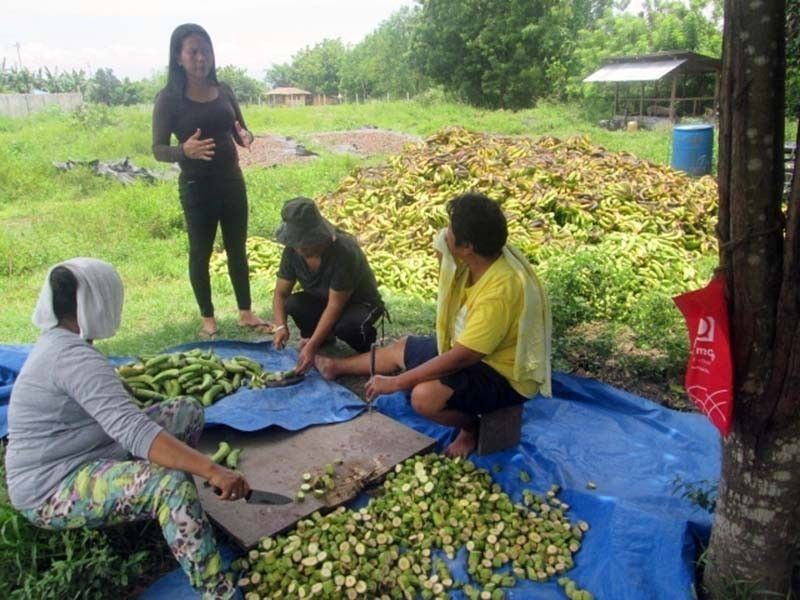UN rapporteurs flag anti-terrorism bill for chilling effect on humanitarian assistance

MANILA, Philippines — United Nations experts urged President Rodrigo Duterte to take into consideration the anti-terrorism bill’s chilling effect on delivering essential or life-saving interventions.
Nine UN special rapporteurs urged Duterte to reconsider certain aspects of the pending “Anti-Terrorism Act of 2020” to ensure that it complies with the Philippine government’s international human rights obligations.
The contentious bill as of July 2 is under “final review” by the Palace legal team and is days away from automatically lapsing into law. Duterte cannot veto parts of the bill as the Constitution holds that line veto may only be done in appropriation, revenue or tariff bills. As it is, if one provision of the bill fails the Constitutionality test, the president must veto the whole bill.
The UN experts stressed that compliance with human rights treaties “are complementary and mutually reinforcing goals for effective counter-terrorism measures.”
They added that the proposed legislation to counter terrorism “raises serious concerns regarding the protection and promotion of a number of fundamental human rights.”
In particular, they raised concern on the bill’s “designation of civil society and humanitarian organizations as ‘terrorists’ in the context of ongoing discrimination directed at religious and other minorities, human rights defenders and political opponents.”
On humanitarian action
UN rights chief Michelle Bachelet earlier this week said that the looming new law may have a chilling effect on human rights and humanitarian work, that would hinder support to vulnerable communities.
In their letter to Duterte, the UN experts raised the alarm on Sections 12 and 13 of the enrolled bill.
Section 12 states that persons who provide “material support to any terrorist individual or terrorist organization, association or group of persons committing...acts under Section 4, or knowing that such individual or organization, association or group of persons committing or planning to commit such acts shall be liable as principle to any and all terrorist activities” committed by the said organization.
Section 4 of the bill defines the acts that constitute terrorism but critics of the proposed measure said it is overbroad and open to abuse.
Meanwile, Section 13 of the bill states that humanitarian activities of the International Committee of Red Cross, the Philippine Red Cross and “other state-recognized impartial humanitarian partners....in conformity with the International Humanitarian Law” are exempted from Section 12 of the act.
The UN rapporteurs acknowledged the exemption in Section 13, but raised concern on the phrase “other state-recognized impartial humanitarian partners...”
“This is particularly concerning as section 12 appears to criminally sanction acts which occurred without intention or unknowingly, with grave potential to create a chilling effect for organizations engaged in delivering essential or life-saving interventions,” they said.
“This section constitutes a direct interference with the provision of impartial humanitarian assistance by placing state recognition and state arbitration as the basis for the provision of humanitarian services,” they added. — Kristine Joy Patag
President Rodrigo Duterte signed the Anti-Terrorism Law on July 3 despite opposition from rights groups and civil society groups that it could be used to stifle human rights.
A petition against the law has been filed at the Supreme Court and other groups are preparing pleadings of their own.
Follow this page for updates. Photo courtesy of The STAR/Michael Varcas
National Security Adviser Hermogenes Esperon moves to block access to several websites, including news sites of alternative news orrganizations Bulatlat.com and Pinoyweekly.org.
In his letter to the National Telecommunications Commission, he only says the websites are "affiliated to and are supporting these terrorists and terrorist organizations."
No other basis to back up his allegation was cited in the letter.
Citing the designation of the CPP-NPA-NDF as terrorists, NSA Hermogenes Esperon moves to block access to several sites.
— Kristine Patag (@kristinepatag) June 22, 2022
In Esperon's letter to the NTC, he included news sites @bulatlat and @pinoyweekly; sites of other progressive groups RMP and Save our Schools. @PhilstarNews pic.twitter.com/nAzMITJFsS
The Commission on Human Rights says it "partly welcomes" the Supreme Court decision that some parts of the controversial Anti-terrorism Law are unconstitutional.
CHR spokesperson Jacqueline de Guia says the commission remains hopeful that the remaining contentious provisions of the law will be clarified by the high cour in the full text of the decision.
"At the same time, our commitment remains in guarding against possible human rights violations arising from the implementation of the anti-terror law. We steadfastly remind the government that countering terrorism and protecting human rights are not competing values but are, in fact, mutual and complementary," De Guia says in a statement.
The Supreme Court has deliberated and voted on the controversial Anti-Terrorism Act but the decision will be released "at the soonest time possible."
"However, considering that there were numerous issues resolved in the case, as well as the fact that each Justice had to vote on each issue, there is a need to accurately confirm and tally the vote of each Justice in order to ensure the correct resolution of the Court per issue," SC spokesperson Brian Hosaka says.
The Anti-Terrorism Council designates the National Democratic Front of the Philippines, the panel that negotiates for communist rebels during peace talks a terrorist organization.
Previous designation of the Communist Party of the Philippines and New People's Army led to the designation of supposed members of the CPP's Central Committee. Among those designated as terorrists were peace consultants.
Designation gives the Anti-Terrorism Council the authority to investigate and freeze the accounts of designated persons.
The Anti-Terrorism Council has designated 29 people, including alleged members of the Communist Party of the Philippines-New People's Army, as terrorists in two resolutions.
Designation allows the Anti-Money Laundering Council to freeze the assets of those on the list.
- Latest
- Trending

































